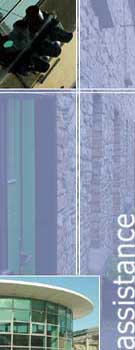Tax
& Business
Once you carry on a trade you will be subject to one or another
form of taxation. The type of tax obviously will depend on factors
such as legal form and nature of the business. The profits of
sole traders and partnerships are subject to income tax. Limited
company profits are subject to corporation tax on taxable profits.
The standard rate of corporation tax for year ended 31st December
2002 is 16% and the rate will fall to 12.5% from 1st January 2003.
In addition, a corporate tax rate of 12.5% applies to the trading
income of small companies/groups with trading income not exceeding
¤254,000. Marginal relief applies if trading income is between
¤254,000 and ¤317,500.
Income from the sale of goods manufactured in Ireland and from
some service activities is taxed at an effective rate of 10%.
This relief will continue until 31st December 2010.
However, a corporation tax of 25% will apply to non-trading income
of a company.
Most businesses are obliged to register for VAT, subject to annual
turnover threshold limits of ¤25,500 for the supply of services
and ¤51,000 for the supply of goods. This means you must account
for VAT.
Where the annual turnover is below the appropriate threshold,
there is not a requirement to account for VAT but you may voluntarily
elect to do so. The potential benefit in registering if turnover
is below this threshold is that VAT registered suppliers may claim
a refund or credit for VAT paid on purchases made for their businesses.
The VAT rates currently applying are as follows:
21% The standard rate applies to goods and services not
specifically categorised as exempt or subject to VAT at any of
the rates listed below.
12.5% Applies to construction services, hotel accommodation,
short term car rentals, newspapers, magazines, electricity, hotel/restaurant
meals, cinema admission, general agricultural and veterinary services,
driving tuition, general repair and maintenance services, property
(freehold and long leases)
4.3% Horses, livestock and certain agricultural products.
0% Items including childrenšs clothing, food, oral medicines,
certain books, certain medical equipment and appliances and exported
goods.
The registration for any category of taxation has been simplified
and the appropriate tax registration form for each business category
is as follows:
• A sole trader whose turnover is expected to be less than
¤126,973 per annum should complete FORM STR
• A sole trader whose turnover is expected to exceed ¤126,973
per annum along with partnerships should complete FORM TR1
• Limited companies are required to complete FORMTR2
The Revenue Commissioners will be able to offer more detailed
information and you should contact the local office or access
their Small Business Page at www.revenue.ie.
How do I open a Bank Account?
The EU Money Laundering Directive is in force in Ireland and financial
institutions have adopted procedures to comply with this directive.
The following procedures apply:
• A sole trader opening an accounts needs to bring to the
bank a current passport or driving licence and a utility bill
• A sole trader operating under a trade name will need the
original certificate of registration of the trade name
• A limited company will be required to supply a list of
directors, their position in the company and details of their
shareholding. You will also be asked to supply personal details
of directors i.e. date of birth, address etc. Newly formed companies
will be asked to supply a copy of the Memorandum and Articles
of Association of the company, original certificate of incorporation,
address of the registered office, a resolution, passed by the
directors, appointing the relevant bank as bankers to the company
and instructions for the bank as to how drawings on the accounts
are to be signed. |
|





